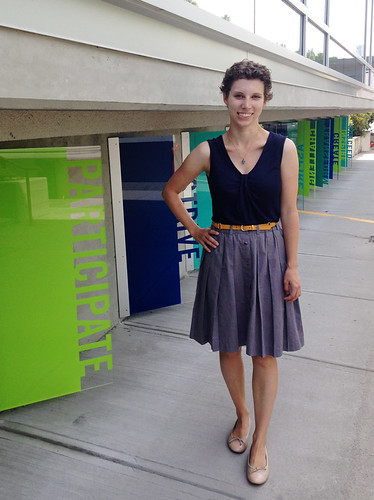Adena Brons is a UBC student in her third year at the School of Library, Archival and Information Studies, completing a Master’s in Archival Studies and a Master’s in Library. She has had some experience with metadata working at New Westminster Archives. Adena currently works part time with AskAway through UBC. Other than libraries and archives, she’s interested in creative writing, cycling and craft beer.

Adena Brons
This past summer, Adena helped to normalize the metadata in our digital collections so that we can move to open access systems to support both archival and scholarly collections. Here’s what Adena had to say about the institutional repository project:
Students write essays. Professors create lesson plans. Student associations write newsletters. The people involved in post-secondary education produce essays, reports, lesson plans, photographs, newsletters, theses, and more. Most of this material is never formally published, yet it remains a significant amount of valuable information about the institution’s scholarship, research, activities, history, and community.
Many post-secondary institutions are creating digital repositories (or institutional repositories) where this information can be stored and made openly accessible to the public. BCIT has its own Digital Collections, available through the library.
While the community of BCIT has created the content you can see in the Digital Collections, the library works on making that content available and open to the public. An important part of that is metadata. Metadata is often called “data about data” and is all of the information about the resource: the title, date, file format, author or creator, description etc. It’s pretty important because if it wasn’t there, you would not be able to tell what files existed, what their contents were or how to access them.
As part of my Masters in Library and Information Studies degree, I worked on an institutional repository project with BCIT librarians to make sure that the existing metadata transfers smoothly when BCIT moves from its current software to a new open source institutional repository (Islandora) platform. Islandora is more robust and will also be used by a large consortia of post secondary libraries in B.C.
So if you’re interested in the research being done by the Environmental Health program, check out their Journal. Or maybe you’re researching the construction and renovation of a BCIT building for a sustainability project: there are aerial photographs and construction images from throughout BCIT’s history.